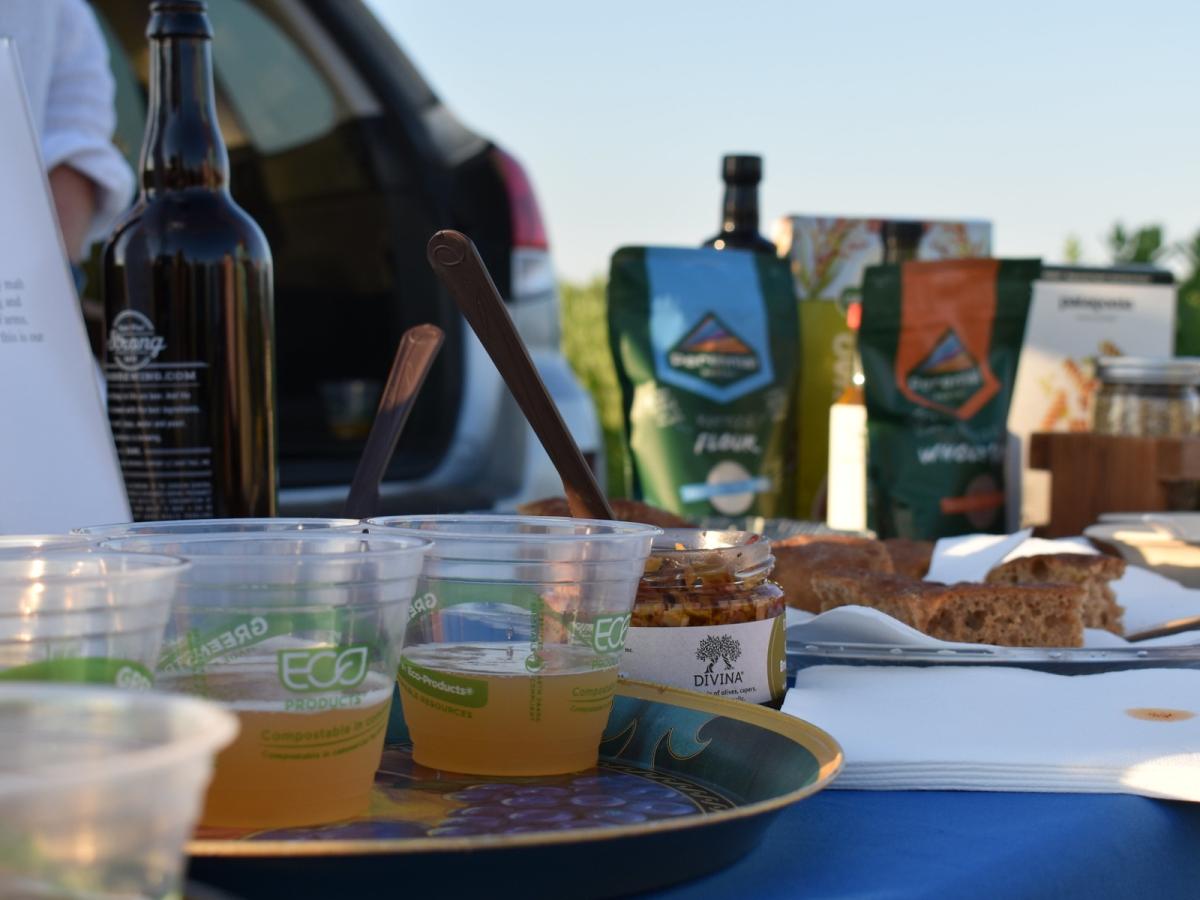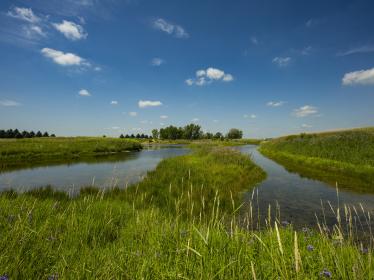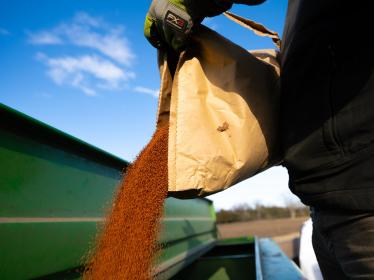Local businesses are leading the way on clean-water crops

We’re seeing the market for clean-water crops here in Minnesota begin to sprout, thanks to businesses like River Rock Kitchen and Baking Co., which recently committed to incorporating Kernza into 75% of its products. (Photo by River Rock Kitchen & Baking Co.)
Covering the big brown spot and finally cleaning up the Mississippi River will require a group effort, from farmers and shoppers to policymakers and advocates. But among those at the forefront of this positive change are the local business owners who work with clean-water crops such as Kernza.
Four of those businesses working to support a more sustainable, river-friendly agricultural system were recently featured by the website Meet the Minnesota Makers.
- River Rock Kitchen & Baking Co. (St. Peter) recently committed to using Kernza flour in 75% of its products.
- Artisan Naan Bakery (St. Cloud) makes Kernza pita and naan products that are available at co-ops throughout the Twin Cities.
- Sturdiwheat (Red Wing) embraces its connection to the river with Kernza muffin and pancake mixes people can make at home.
- Perennial Pantry (Burnsville) is opening a brand new processing facility in Northfield to meet the demand for their Kernza crackers and other products.
"I felt like this lightbulb went off. Incorporating Kernza in the majority of our menu items will have the biggest impact," Montana Rasmussen, owner of River Rock, told Meet the Minnesota Makers. "It will educate our customers about this perennial grain, bring in its subtle nutty taste, and allow our bakery to use as much of the flour from our local growers as possible."
You can find these stories (plus additional features on award-winning chef Beth Dooley and the Forever Green Initiative) collected on the Forever Green Partnership website and via Meet the Minnesota Makers.
National interest builds
FMR has been advocating for clean-water crops for years. We've been making the case for policies and investments that support the research and market development needed to get these crops on the landscape — helping to repair the river.
We're seeing the market for clean-water crops begin to sprout here in Minnesota. At the same time, the seeds of future growth are being sown throughout the rest of the country.
Forever Green staff attended this year's National Restaurant Association convention in Chicago. They showcased Kernza, American elderberries and Midwest-grown hybrid hazelnuts, explaining how these crops not only provide continuous living cover, but can be a nutritious, sustainable choice for ingredients.
Not long after, Food & Beverage Insider — one of the top resources for the packaged foods industry — published a long feature about how Forever Green is turning "smart farming into ingredient innovation."
Kernza, hybrid hazelnuts and Midwest-grown elderberries "offer the food and beverage industry sustainable, whole-food ingredients with creative culinary potential," the piece explains. The author spoke with:
- Christopher Patton at Midwest Elderberry Cooperative about the benefits of U.S-grown elderberries vs. those imported from Europe
- Emma Dempsey at American Hazelnut Company about the many food uses for hazelnuts, including as oil, flour and snacks
- Katharine Chute at Forever Green about the power of Kernza flour in things like pizza crust or cookies.
It's the latest in a string of positive developments for clean-water crops.
Patagonia Provisions is continuing its national Kernza beer effort (which St. Paul's Bang Brewing was part of) and also recently introduced a line of Regenerative Organic Certified Kernza pasta.
For something more local, you can now find Kernza on the menu at Rootstock, the new cafe at the Minnesota Landscape Arboretum. Or, stop by Haggard Barrel Brewing in St. Louis Park. Their recent sour, dubbed Glonky, is brewed with Kernza — and won gold at the 2024 U.S. Open Beer Championship in the Smoothie Sour category.
Funding for market development continues to grow
Even Washington, DC is taking notice of the momentum building here in Minnesota. The U.S. Environmental Protection Agency's Climate Pollution Reduction Grants included an award of nearly $200 million to Minnesota, with $20 million of that going to the state's Department of Agriculture (MDA) for "climate-friendly agricultural practice incentives and continuous living cover crop market development."
Although final decisions haven't been made on how to allocate this money, it appears that $500,000 will be set aside for MDA's "Growing Markets for CLC Crops" program or a similar grant mechanism. Since the program's inception in 2022, MDA has been assisting businesses and organizations that are working to grow the market for crops that provide continuous living cover, with $1 million in previous funding coming from the state Legislature, thanks in part to River Guardians' advocacy efforts.
And the state's Clean Water Council is actively considering two proposals that would support research and market development.
All of this is great news for the river. As the market for clean-water crops grows, we can make that big brown spot across the heartland shrink.



